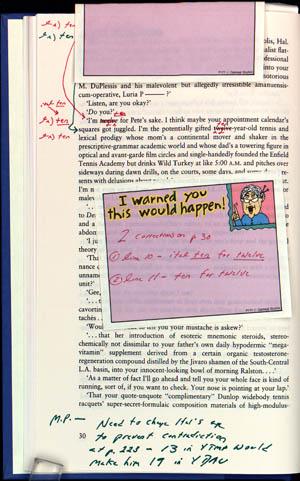How The David Foster Wallace Archive Landed In Texas

The Harry Ransom Center has landed perhaps its most buzzed-about literary acquisition in several years: the archives of the late American writer David Foster Wallace.
The news ricocheted around the Web late Monday evening, from Twitter to blogs to major news sites, and it was published today in the New York Times, the L.A. Times, and as far away as France.
Wallace is well known for his manic writing style (some called it maximalist) and his 1,000-plus-page breakout novel, Infinite Jest, published in 1996. He also wrote The Broom of the System and Girl With Curious Hair, as well as wide-ranging collections of essays and short stories like Consider the Lobster.
"It's the first archive of this generation, and I don't think it gets much more high-profile than David Foster Wallace in the literary world," says Molly Schwartzburg, the Ransom Center's curator of British and American literature.
The collection includes everything from manuscripts for Wallace's books, to works of other authors that he read and annotated, to poems and stories he wrote as a child — together, a full treasure chest for researchers.
But what's most interesting, perhaps, is how the Ransom came to acquire the archive, which assistant to the director Megan Barnard shared in a blog post.
Wallace, it turns out, had been on the center's list of writers to watch for years. Tom Staley, its director, read essay on tennis player Roger Federer that Wallace wrote for the New York Times. An avid tennis player himself, Staley wrote to Wallace, inviting him to visit cam
pus and challenging him to a tennis match.
Staley didn't hear back. But after Wallace died (tragically, by his own hand) in 2008, at age 46, Ransom Center leaders wrote to his agent, expressing hope that his papers would be kept "somewhere — anywhere."
Months later, representatives of Wallace's estate called back. And by this fall, researchers will have a chance to examine this brand-new archive for themselves, Schwartzburg says.
"That really is what matters about this acquisition," she says. "How many new ideas are going to come out of this from scholars and students?"





